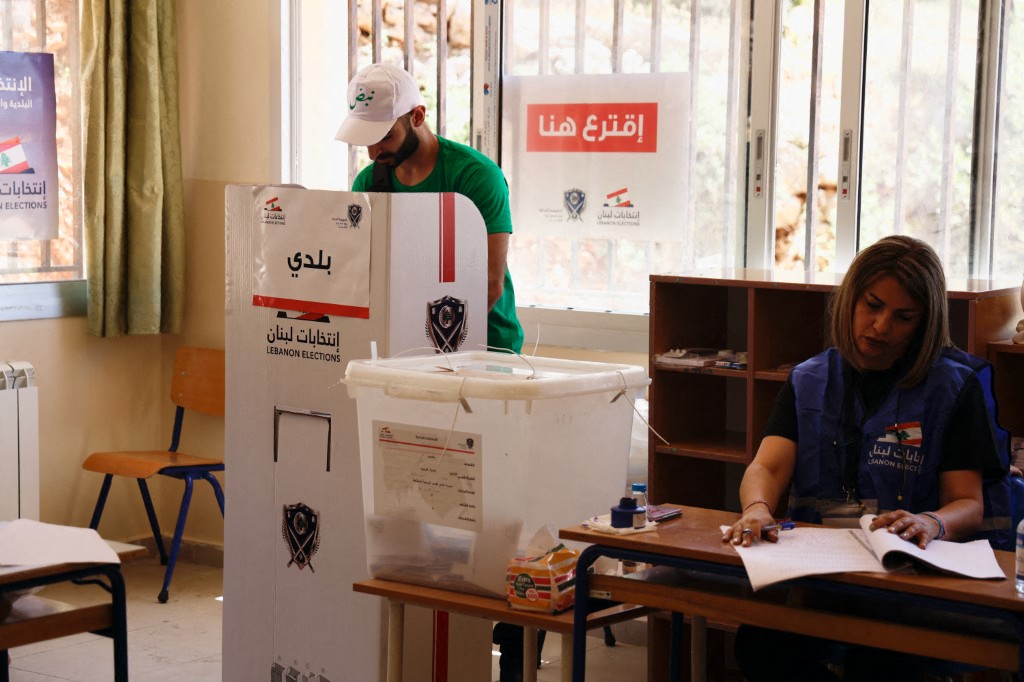Lebanon has successfully closed the chapter on its municipal and mukhtar elections, with minimal errors or irregularities. Some claimed victory—bravo. Others claimed it without merit—shame. And for those who lost, hard luck.
Now, as the results of this long-awaited electoral round, held nine years after the last, begin to make waves in the popularity market and are leveraged for next year's parliamentary elections, municipal councils must get to work. It's time for action, not just words. They must roll up their sleeves and head to the field with two main goals in mind—after all, as I’ve written before, a municipality is a local government where its members are ministers, and its president is a prime minister.
The first objective is purely developmental. Unfortunately, some parties distorted the nature of the municipal battle by politicizing it, turning it into a contest of slogans and ego—talk of "elimination," "tsunami," and “my dad can beat up your dad.” But as a local authority—and until a unified national development plan emerges and expanded administrative and fiscal decentralization becomes a reality—municipalities must support central government projects within their jurisdictions and in coordination with municipal unions.
This means promoting proper urban development, halting chaotic construction, cracking down on violations, and supervising construction sites firmly, without giving in to the notorious “bribe culture.” Municipalities should reforest barren lands, create public parks, stop environmental degradation caused by quarries and waste, and build sorting and recycling facilities to make use of refuse in various ways. Fun fact: many international football jerseys are made from recycled waste—some of us pay top dollar for a shirt bearing a star player’s name without realizing it’s made of trash.
Municipalities must also safeguard local security by activating municipal police and night patrols to deter thefts, assaults, and murders. They should pave and mark roads, ensure public safety, build sidewalks, improve infrastructure, regulate the installation of solar panels, promote public libraries and theaters, and organize cultural, artistic, and recreational events for both residents and wider Lebanese audiences.
And why stop there? With so many promising projects in sight, municipalities should embrace digital transformation, automating all administrative tasks—permits, bills, taxes, and dues. They should seek twinning partnerships with successful municipalities abroad, especially in areas where expats from their villages or towns live and prosper—these connections could bring valuable support.
Moreover, why not bring abandoned houses back to life? Municipalities could partner with absentee owners or their heirs—both residents and expats—to convert these homes into guesthouses. The revenue would benefit both owners and the municipality while boosting local tourism.
With a promising summer ahead, newly elected councils should seize the moment to promote tourism, especially in areas rich in religious and archaeological sites.
The second objective is political, sovereign, and existential. Lebanon has borne the weight of this issue for 14 years, since the Syrian war erupted in 2011. That issue is the Syrian refugee crisis, with numbers in Lebanon nearing two million.
The Assad regime has fallen—its survival was long used as an excuse by refugees to avoid returning. A new government, supported by the international community and most Arab countries, is now in place in Syria. Security has gradually returned. The United States has lifted sanctions, easing many of Syria’s economic, financial, and social hardships. Syrians can now live with dignity after years of deprivation. Reconstruction efforts have begun—efforts that require Syrians to return, whether as skilled labor or green-fingered agricultural workers.
International NGOs, which once encouraged refugees to stay in Lebanon with generous aid, are now cutting back, with the latest move being a halt in healthcare services.
While successive Lebanese governments have dragged their feet on seriously addressing the refugee crisis—often opting for cosmetic or half-hearted solutions—Prime Minister Nawaf Salam’s government must now act swiftly to enable returns. All excuses have expired.
If the central government fails to act, municipalities must take the lead, as the Municipality of Hadath did, where there are no permanent Syrian residents. They must count the refugees, verify their documentation, and ensure that no one resides illegally in their jurisdictions. Municipalities must monitor their movements, especially amid reports of dormant ISIS cells, and regulate their presence. They must prevent illegal property ownership, unauthorized businesses, and employment that undercuts Lebanese workers with cheaper labor.
Draft laws have been submitted to Parliament. Memos have been sent to global powers—governments, parliaments, councils, funds, agencies—calling for a reduction in Lebanon’s unbearable demographic, economic, social, and security burden. These measures must be implemented. If not, municipalities should become a pressure force to ensure their enforcement, for Syria’s sake, but above all, for Lebanon’s.
Syria is doing better now. And as the saying goes, if your neighbor is doing well, so are you.
Please post your comments on:
[email protected]
 Politics
Politics







